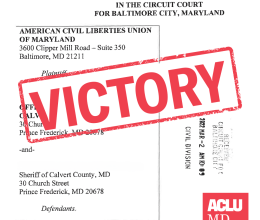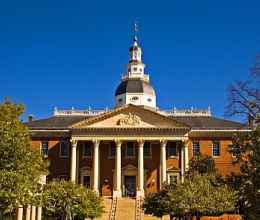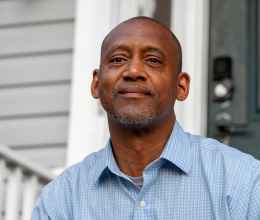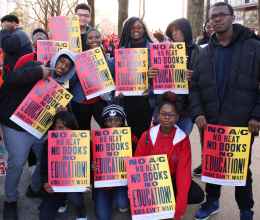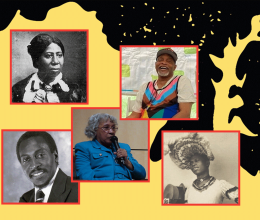
Documents:
- ACLU letter to Baltimore Housing Authority on behalf of Maurice Whitehurst
- Letter from Baltimore City rescinding the message removal order
- HABC notice and order to remove messages
BALTIMORE, MD - In a victory for free speech following the uprising in Baltimore after the police-involved death of Freddie Gray and as the officer trials get underway, the American Civil Liberties Union (ACLU) of Maryland has successfully defended a Baltimore homeowner who was ordered to remove "Black Lives Matter" political messages from the side of his property. In response to an ACLU letter demanding that the citation against Maurice Whitehurst be dismissed, the Baltimore City Department of Housing & Community Development (HCD) has withdrawn the order to remove so called "graffiti" from his property.
"Sharing these messages on my wall is both my right and my opportunity to make sure all sides to the story of turmoil in Baltimore are heard," said ACLU client Maurice Whitehurst. "Usually, you just hear from the media about what's going on in Baltimore. But I have a voice myself and want to share my story of personal suffering to my own community. There needs to be more, not less, dialogue between city officials and residents so that our voices are heard."
On September 30, Mr. Whitehurst was issued a citation for "defacement of an exterior surface" because he had spray-painted political messages on an outside wall of his own property, for example "False Flag Is pointing to Black on Black Crime when the issue Is Police ABUSE." The ACLU letter to HCD argued that Mr. Whitehurst could not be in violation of the law because there is no authority for the city to issue a citation for marking political messages on one's own home. "Graffiti" in the building code is defined as "a permanent drawing, permanent painting, or permanent mark or inscription on the property of another without the permission of the owner of the property," which was clearly not the case here.
"Americans have the constitutional right to use their own personal property as a platform for expressing their political opinions," said Nick Steiner, legal fellow at the ACLU of Maryland. "Mr. Whitehurst is exercising his First Amendment rights by using the side of his home as a canvas for political messages that define his political identity on pressing issues in American society - racism and police misconduct."
###
